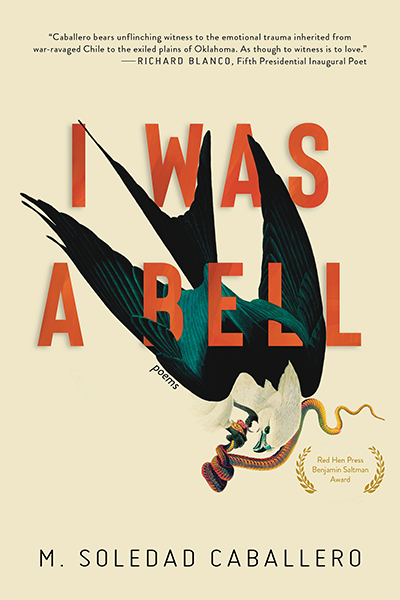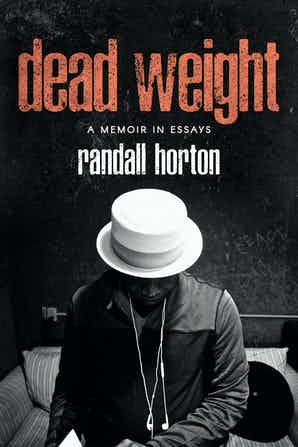Micro Review: I Was A Bell
Caballero, M. Soledad. I Was A Bell. Red Hen Press, 2021. 93pp.
I was thrilled to read Soledad Caballero’s debut collection, I Was a Bell, winner of the Red Hen Press Benjamin Saltman Award. In this prize-winning book, she tackles loss and memory and how we can never really return to where we were before. She writes about the various journeys she has taken throughout her life and how the memories of those past places live in her body. At the time of writing this book, she was diagnosed with cancer, which put the perspective of time and memory into sharp relief.
She grew up in Santiago, Chile and her poems of her time there are full of warmth and love, with a darkness in the background. While her family was not forced into exile during Pinochet’s regime, her family decided to take an opportunity to leave. She writes about the differences between cultures, the difficulties of assimilation, and the anxiety of place — who belongs where and what makes a person legal — as seen in her poem, “To Document:” “Who is real. Who is allowed. Who is loved. Who is ours.” She incorporates Spanish into her poems to illustrate the ever present duality of land of birth and land of home.
She delves into the horror of Pinochet and his reign of terror. I was not familiar with the U.S.’s involvement or the extent of the horror he inflicted on the people of Chile. She uses CIA documents to further illustrate how complicit the US was in creating Pinochet’s regime and what followed. For example, she writes in “Villa Grimaldi,” which was a prison turned into a memorial park, “No blood now. / No broken bits of teeth and buttons.” Pinochet used death flights and electrical torture on his political opponents. She makes the point that this horror can happen while ordinary folks go about their daily lives.
To switch to form, I love the ambition in her pecha kucha, a wild form developed by Terrence Hayes, in which the poem is comprised of a verbal slideshow. Each stanza is a slide and there are 20 stanzas. In “Memory Spaces,” Soledad names each of her slides after a work of art by Doris Salcedo. Soon, the art is impacting the poem, which is impacting the form. Here is the first stanza:
[A FLOR DE PIEL] Even love finds room in the dark blood box. It rises slowly. Spreads like water, ocean waves. Keeps time, keeps memory. Coats the days, the weeks, the years. Offers resurrection, the promise for tomorrow. In basement cells, prisoners held hands, leaning into each other back to back. Their skin rice paper-thin, split, wounded, bruised tender.
Because both the art and poet are reacting against state violence, the stanzas are snapshots of those tortured and disappeared during Pinochet’s regime.
But with all the darkness in the book, it is a book of resilience and love. There are simple joys. There is swimming and family dinners. There is music and vulnerability. In her poem, “Ode to My Hair,” she writes, “It was dark, wild, coarse brown-red curls. / It hung, a long thick rope behind me. / A way to hide. A way to be seen… My one spark of Venus.”
Soledad incorporates texts such as the aforementioned CIA documents about Pinochet’s regime, her medical diagnoses, and flight announcements made by flight attendants. As humans we are always in conversation with the world around us, questioning claims, answering questions, seeking truth. Soledad exemplifies this. She is always in conversation with other poets, texts that inform our lives, moments in our shared history, and most importantly to this collection, her memories of her childhood.
To see Soledad In Conversation with the Notebooks Collective.
Buy her book.

